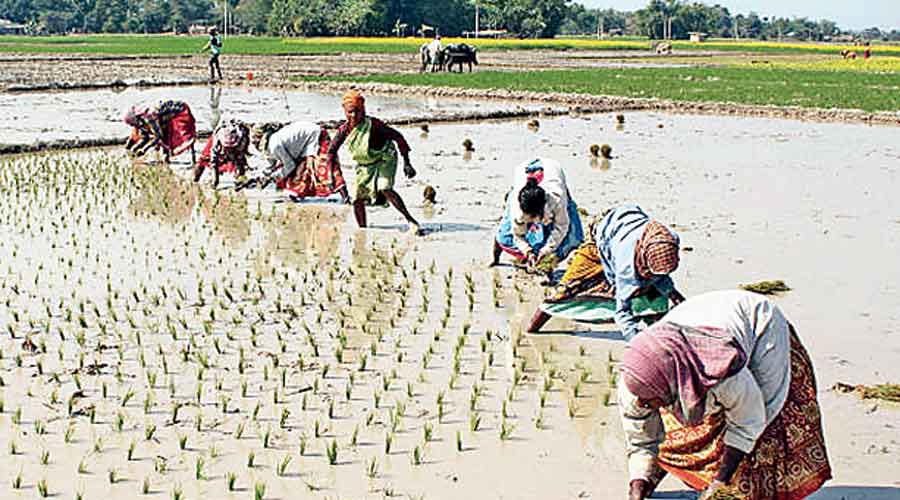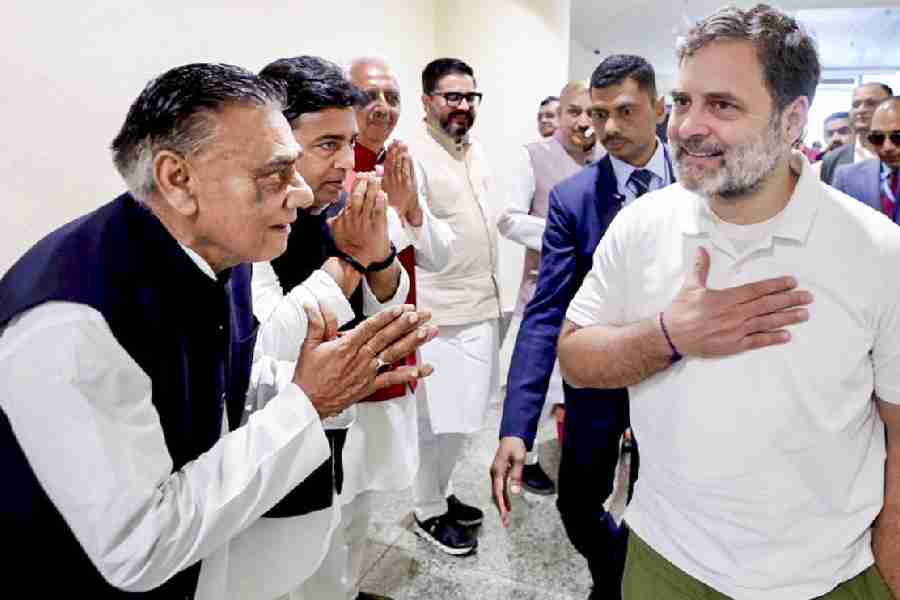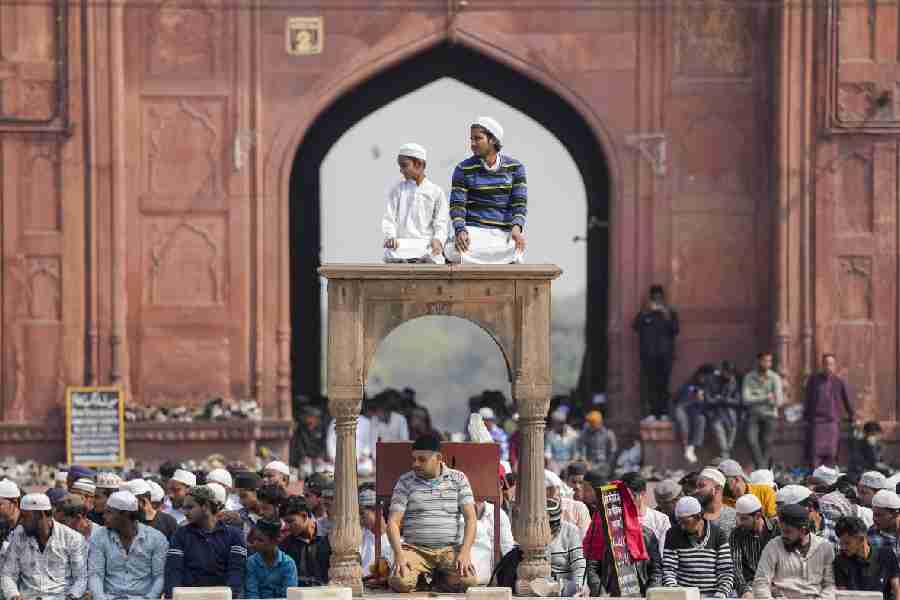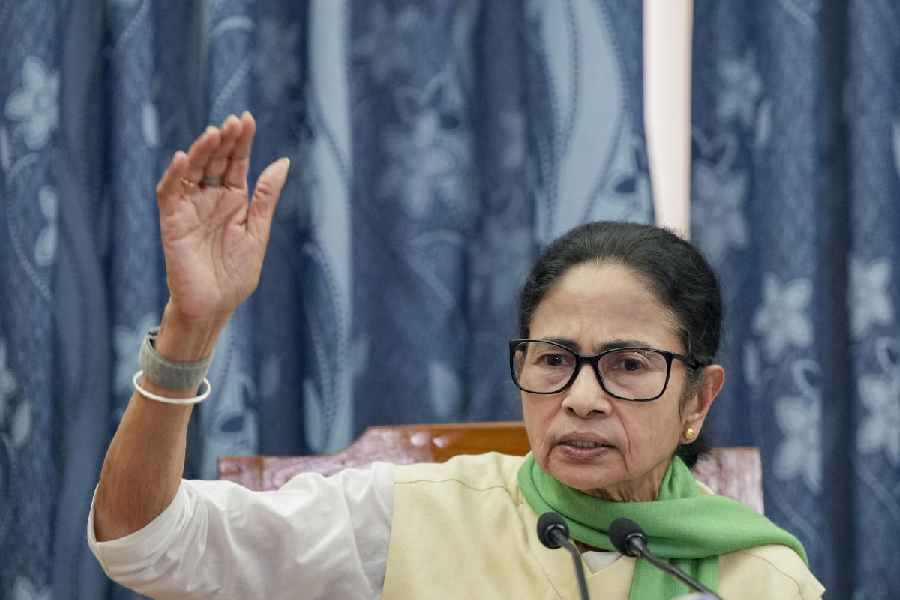The Centre’s plan to bring 2.5 crore farmers under the Kisan Credit Card regime as part of its Rs 20 lakh crore stimulus package to boost the country’s pandemic-hit economy seems to have tripped in Bengal because of lack of urgency shown by banks, especially scheduled commercial banks, to meet the target.
Union finance minister Nirmala Sitharaman had announced the Centre’s much-hyped stimulus package in multiple phases in May.
She had then claimed institutional credit provided through KCCs, which is facilitated and monitored through the National Bank for Agriculture and Rural Development (Nabard), would provide relief to lockdown-hit farmers.
The promise, however, seems to have remained only on paper as an internal status report circulated among commercial banks, cooperative banks, regional rural banks (RRBs), Nabard and the Reserve Bank of India on July 23 and accessed by The Telegraph shows in the case of Bengal, 9.49 lakh KCCs have been issued to non-loanee farmers against the target of 20.18 lakh.
Though Bengal’s figure of 47 per cent achievement of its KCC target is above the national average of 45 per cent, the credit for it goes to much-maligned cooperative banks and RRBs.
The two entities have notched up a figure of 87 per cent, with some banks outstripping their targets while the scheduled commercial banks, both public and private, have performed miserably meeting only 31 per cent of its target of over 14 lakh KCCs.
“The performance of commercial banks, including the State Bank of India, turned out to be miserable in rolling out KCCs in Bengal. Private sector banks, including big names like ICICI, HDFC, IndusInd, and Bandhan Bank, have either sanctioned zero KCCs or are too negligible to be mentioned,” said a source in the banking sector.
Bringing more farmers into the KCC fold is crucial for rural Bengal this year because the farm sector has been reeling from the twin blows of Covid-induced lockdown and Cyclone Amphan.
The fact that the failure of the banks in meeting the target is affecting farmers is evident across rural Bengal as the farmers are running from pillar to post to get KCCs, which can solve their cash crunch.
Marginal farmer Ujjwal Mukherjee, who tills his small piece of land at Rupsa village on the fringes of Sriniketan in Birbhum district, explained the problems he has been facing in this sowing season. “I have been banking on the KCC as my savings have been hugely eroded because of the lockdown. Where do poor farmers like us go? In my village I am not the only one running around to get KCCs,” he said.
Debasish Basu Chowdhury, general secretary of the Bank Employees’ Federation of India, blamed Nabard and bank managements for not doing enough to achieve the targets. “Nabard’s lack of seriousness to monitor the performance of banks is the reason for the indifference shown by bank managements in meeting KCC targets. As state governments have major representation in State-level Bankers’ Committee, their role is critical in making banks meet KCC targets. The state government’s role in Bengal has not been up to the mark,” Basu Chowdhury said.
Seeking to refute the charges of slack monitoring, Subrata Mondal, chief general manager, Nabard, said: “The performance of commercial banks is monitored by the RBI, while we take care of RRBs and cooperative banks. The performance of RRBs and cooperative banks shows we are doing our job.”
The State Level Bankers Committee (SLBC) is an apex inter-institutional forum to create adequate coordination machinery for the development of the state and it comprises representatives of commercial banks, RRBs, state co-operative banks, RBI, Nabard, heads of government departments and representatives of financial institutions operating in a state.
State agriculture minister Asish Banerjee passed the blame on the scheduled commercial banks.
“The commercial banks are not cooperating to the extent they should in meeting Bengal’s KCC target. I will request our people in the SLBC to take up with commercial banks their indifference towards meeting the KCC target,” he said.
Non co-operation of the scheduled commercial banks in extending credit to poor farmers or artisans in rural Bengal has often been cited as one of the major reasons behind indebtedness of the weaker sections of the society to moneylenders, who charge very high interest from the borrowers.
The issue, along with failure in meeting annual KCC targets, are discussed regularly at SLBC meetings.
The convener of the SLBC in Bengal, Ashwini Kumar Jha, said he was optimistic about the state getting closer to meeting the target, which would help infuse liquidity into the agriculture sector.
He has admitted commercial banks are lagging behind when it comes to disbursing KCCs and the state government is aggressively pursuing the case at SLBC meetings.
Jha said:“We have pushed ahead and managed to issue around 11 lakh KCCs in the current fiscal. As for private banks, their poor performance is primarily because of their lack of penetration in rural areas.”
Reminded that last year the state had achieved only 68 per cent of its KCC target, Jha said: “This fiscal despite the lockdown and a raging pandemic we hope to do better.”










